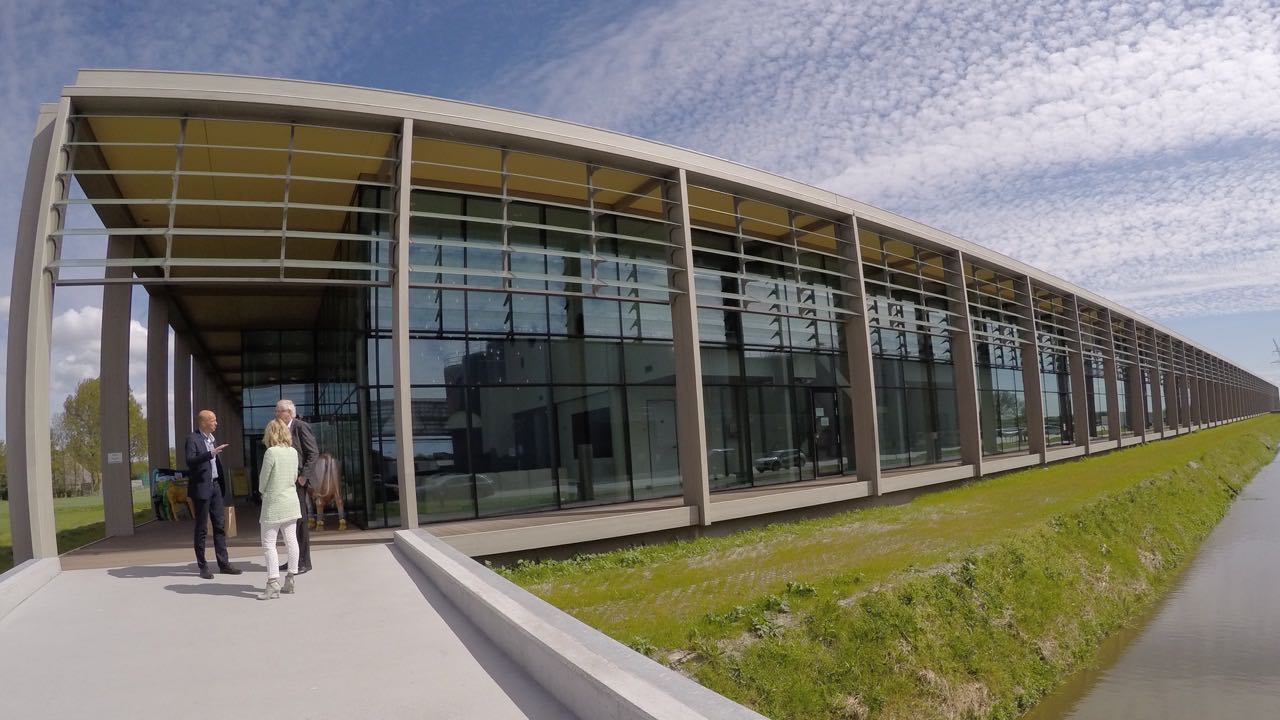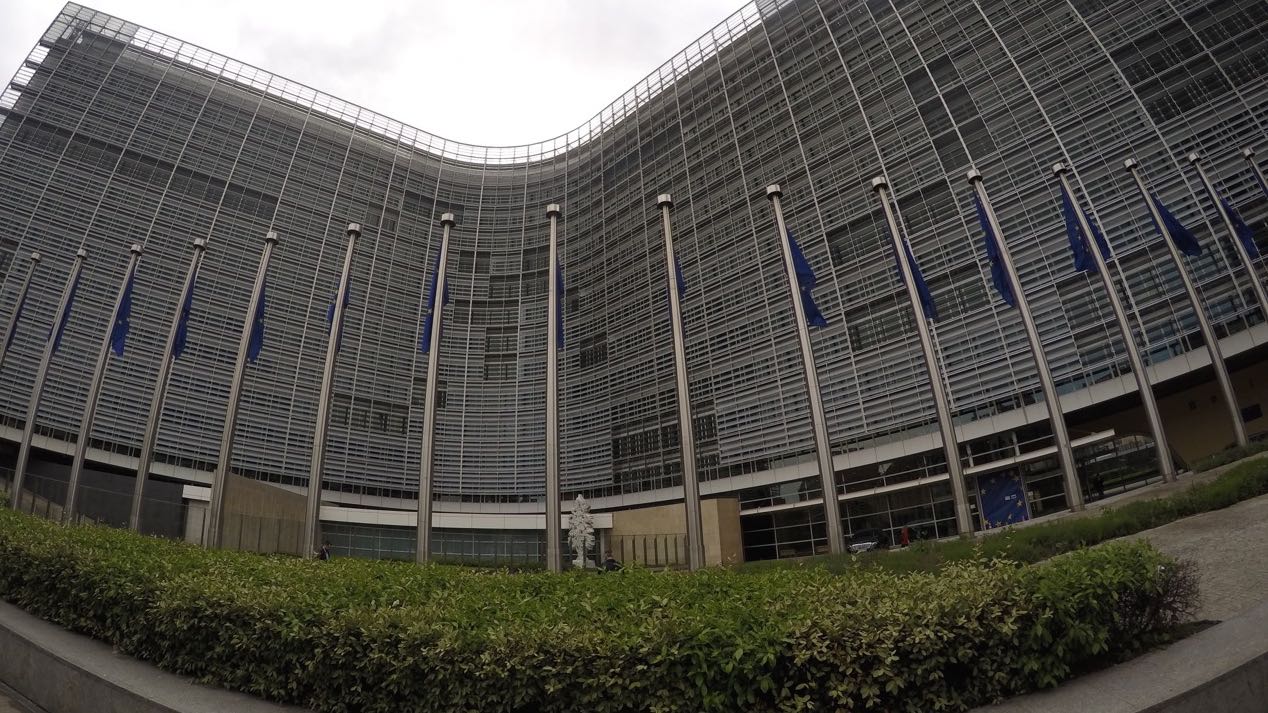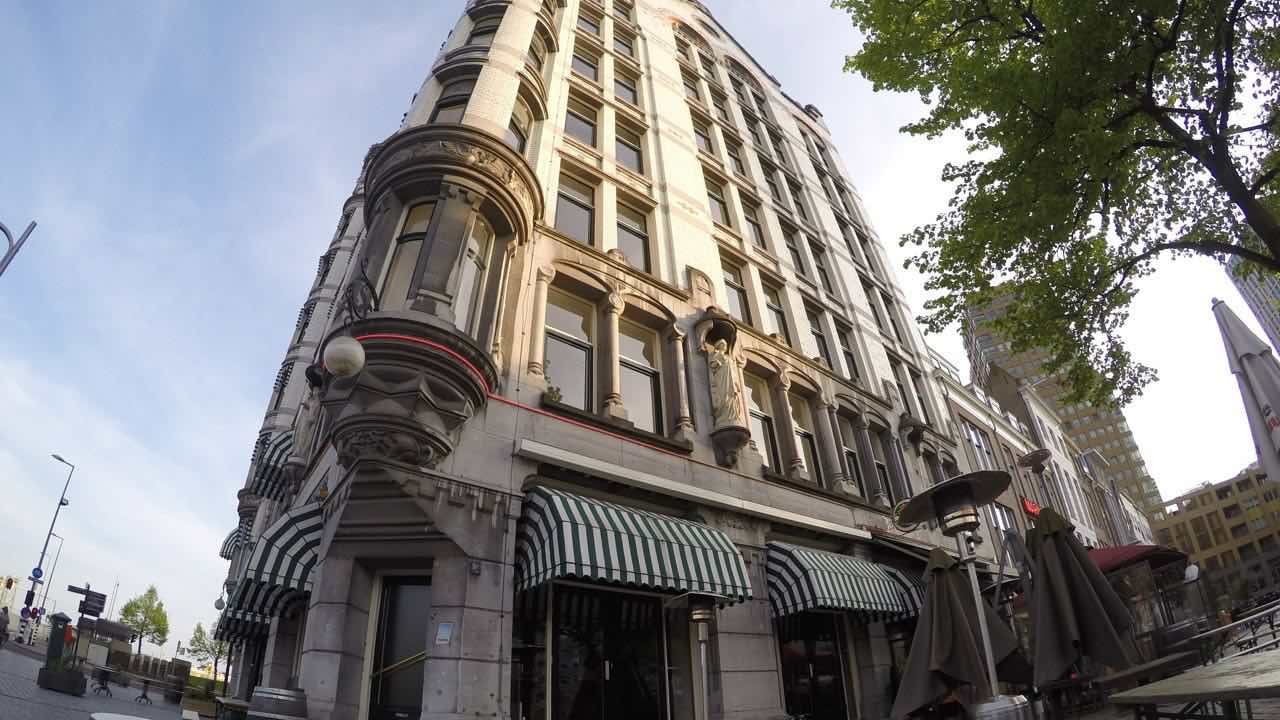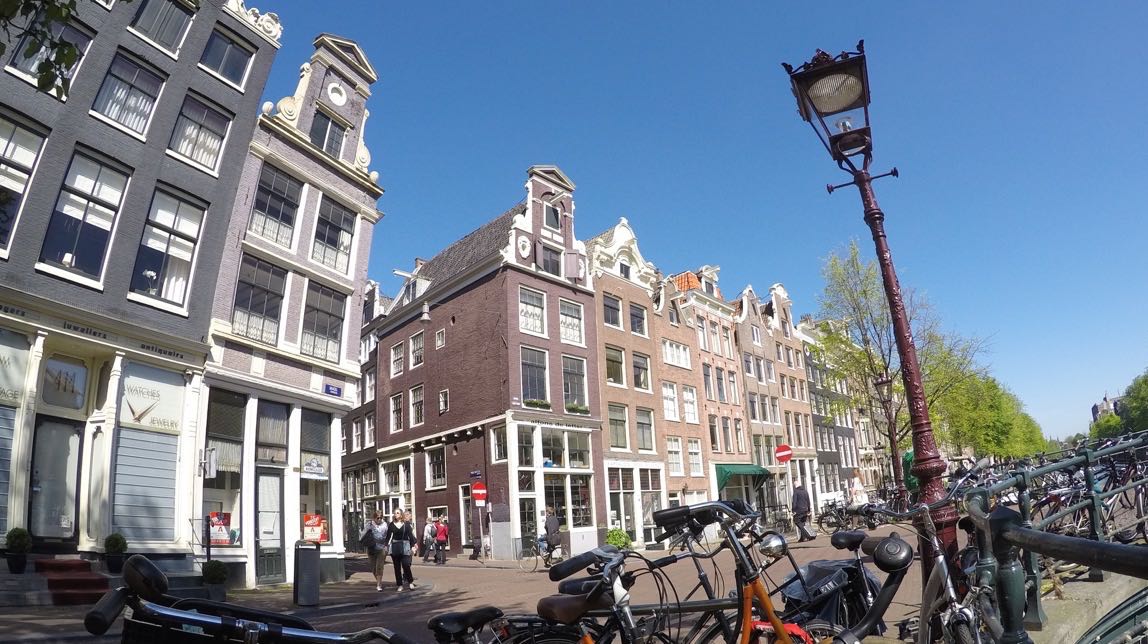We’ve lost our way in sourcing health
Unquestionably, the leading feedback I tune in defending the quality & value of food – is it’s too expensive. Product price over Value is the top driver in most US households, proven in the national statistic comparison for food expenditures introducing essay 2 on Evidence-based Agriculture.
Of any possession, including other perishables like time and patience, food should be heaved to the top of the value chain. That said, I strongly believe that it’s only a matter of awareness to potential risks looming in US production before price relinquishes it’s near singular grasp on food buying habits. This theory would seem solidified by a few recent instances where societal backlash changed practice and general awareness quickly. A few years back, the newly minted power of social media expressed a near immediate US remediation of pink slime in beef processing. More recently, our mainstream media reaction to ebola turned a controlled situation into hysteria. I could only speculate to the impact a medical world with pervasive resistance would have on information outlets and thus general awareness significant enough to enact precautionary change.
Better yet, what we lack is not necissarily more gloom and doom, but instead appreciation for the impeccable upside to personal well-being, societal value, family health, and of that of our surroundings that comes from committing a few extra bucks a month dedicated to buying higher-quality foods of diverse value.
Yes, due to virtually no domestic economies of scale in alternative production; lack of equity and risk capital; lack of equal public dollars supporting initiatives dedicated to alternative vs. conventional agriculture; and because products at market are sold at controlled premium niche prices – this higher quality food is more expensive – at least for now. As proven in other countries, most noticeably the Netherlands, it seems a short-horizon before free-markets will connect opportunity with capital to meet new market evolutions and demand. In the information age, the inevitable future of a market continues to prove as consumer desire. But, somehow we remain food ignorant in the US. Somehow we persist in not knowing the backstory of food, despite requiring information of everything else we buy except what’s most important in subsistence.
Awareness of issues, and known benefits of remediation become equally impetus to move value ahead of price alone
So, we need a bit of a (or in our case in the US, an increasingly larger) gut-check in conjunction with efforts detailed in improving production capacity and efficiency of sustainable agriculture. This call to arms will equally require social, cultural and personal commitment to the value of food.
It turns out we have a bit of an excuse with this one. We’re pre-wired to be a short-term thinking animal. In the book Immoderate Greatness William Ophlus does a masterful job concisely defining how and why we’re pre-programmed to be these short-horizon thinkers, detailing from origin of homo erectus -to- progressive societies why we haven’t been able to break from preordained assets we took with us from the wild. Once useful, these now prove as limitations when dealing with living with our others in closer confinement. Fast-forward a few millions years and we’re still living with those defense mechanisms that kept our ancestral generations alive.
We’ve seen some glimmers of evolution recently, especially with broad information sharing. A few industries have discovered and cultivated methods that circumvent the natural short-horizon thought-process intrinsic in us all. Most noticeably, at least from my perspective as it’s part of my past career, is the financial retirement industry’s capacity to engage nearly every American, and their employers, to proactively plan for long-term wealth preservation. Timing was ideal, as driving independent retirement plans cleanly replaced faltering pensions. Milestones reached thresholds, and through decades many retirement goals were reached thanks to smart public and private support, and broad GDP growth & expansion.
The quality of food starts with the plants & animals upon which we feed.
The consumption of food that is clean of toxins, higher in nutrients and safer for your community & planet – a higher quality food – should be perceived no differently than your financial retirement plan. Small, habitual and sustained practice is what preserves the health of any portfolio, including personal well-being, and dollar cost averaging is no different if it were diet or 401K. Pay the farmer now or pay the Doctor later – isn’t the whole story anymore. With the cost of modern care, those Doctor medical bills now cost orders of magnitude greater expensive, you lose those essential perishables of time and patience, and mostly it means you got a health problem(s) and poorer quality of life. HR teams explain that once you begin contributing to an employer sponsored 401K program – you won’t even realize it’s coming from your current paycheck. And boy does it compound! Over the years your investment in safe and healthy food grows and reaps great returns, similar to your financials. Spending an extra 20 or 30% on food quickly becomes the best investment you’ll afford yourself and your family. First by delaying your succession plan, the benefit further presents itself in your general wellbeing while stocking away those investments, and to that of your family’s health as well. Lastly, what habitual practice do you want your grandkids to share, and thus pass to generations-of-the-next?
Without parameters, we've afforded too much credit to an industry asked to make and source cheap food.defined
To clarify, I use diet as a noun. Anything we consume is our diet. The process of going on “a diet” perpetuates misconceptions. How we source and produce our sustenance means a great deal more to the value of that food and the affect on your body than does any caloric or fat content. A concept of eating what you want, as long as it’s of higher quality – is the place it began and where to return. This commitment to sourcing develops awareness, engagement and better chronic eating practices that the folks practicing the verb of a diet desire. When the body operates on proper fuel and framework, including minerals, phytonutrients and lack of toxins and contaminants – the overindulging desires of an overfed and undernourished society reduce as hunger subsides not when the belly is full or stuffed, but when the body feels nourished and sustained. Stacking cheap, refined and quick acting sugar energy into everything we eat surely doesn’t help the body or mind. Playing chemical warfare on the body’s ability to regulate hunger vs. desire, sugar in all forms, but especially refined, is mainlined in the Western diet to a point of system shock, inflammation and as an instigator of modern plague. I’ve heard it defined as the starter-drug to the ill-to-pill reactionary approach to healthcare.
If we have hope of collectively empowering healthcare to be electively preventative, we must begin equally on the farms as between the ears.
Deep roots:
No matter from where you hail, we all share food to be much more than caloric. Further, food runs much deeper than what’s often be defined as ethnic. Instead, I think food and that of its production share a common language amongst any successful lineage proven-out with a national, cultural or regional pride. Heritage and food/ diet are nearly interchangeable in most cultural backgrounds represented Stateside.
Instigating and antagonizing this lost cultural heritage via food could happen in nearly every US household. To utilize an aggregate of traditions to sculpt a new national food identity for the US which can learn from so many successful attributes of our diverse citizens. A StoneSoup for health – the basis for making these cuisines unique becomes focus on sourcing only top quality raw materials. This melting pot for food heritage of the US is lofty goal, but one I believe to have potential of great advocacy and support, when promoted and supported appropriately through awareness and production infrastructure.
Currently done primarily in higher-end white tablecloth restaurants of celebrity chefs, the opportunity is to make the farmer the rock-star of food – not the person mixing the ingredient nor turning on the cook-top. High-end restaurant food quality sourced broadly and diversely as means of preventative health has teeth. That said, we do have cultural food heritage broadly digested in the States – but predominately and stereotyped globally as cheap and fast foods. If not super-sized at the table of the franchised restaurant – this lower quality commoditized foodstuff makes up the vast majority of the center aisles of the grocer – the pinnacle example of sacrificing food value for price and profit. The game theory presents this as the best possible scenario as food desires and production requirements evolve. Delving deeper through awareness and appreciation into food’s backstory as a common core competency to reinvigorate each food-heritage through a new national ideology of food. As the Dutch have done with dairy, glass-house horticulture and recently clean meats – owning a positive persona focuses proper attention.
Based on proper financial drivers supporting an innovation economy, improving raw materials in conjunction with informing consumers of the true and accurate value of reducing risk through cleaning a food system of neurotoxins, hormone disruptors and animal steroids will have positive recourse with lasting effects to body, ethos and generation ahead. A roughly painted picture of OneHealth in the US could be cultural or regional pride that celebrates diversity of population – equally. That wonderful nuance that makes us each so unique, but equally as common amongst every Joe seems a bridge built by getting more folks thinking again about food for it’s value to human and environmental health, and developing a shared pride associated to each diverse recipe using nothing but healthier and safer foods of greater value.
.
i. Decommoditization value over price
The concept of decommoditization is just as it sounds – the opposite of commoditization. To return intrinsic or unique additional value to a food output through proper circular agriculture. Our practice of cheapening production crops of nutrient value and inducing potential risk from methodologies that cut corners on essential systems is proving that the skimping often used in conventional practice is concerning, and potentially, the compounding effect of compromising values has corrupted the underlying purpose of food. It’s not caloric, it’s sustenance.
Not all food is created equal – couldn’t be more true. The further down processing you adventure, the more the concern you draw in increasingly shallow waters. There are many shortcuts of unintended, unknown, and better yet unrealized consequence supporting our production infrastructure in the US. As mitigation to going all-in with a single methodology in food production – we should study the book of forced Dutch innovation. With our current production methods that are nearly similar in practice to those in the the Netherlands 15 years back, we can see our future – and if we learn from this Dutch insight – we’ll require systemic change to clean-up some minimum market entrance thresholds that currently put us in significant jeopardy.
Many of the best opportunities have proven to be companies that have gone far further than just meeting revised minimum market thresholds, but instead decommoditized product sectors in food. Some glimmers have happened in the States, but our staples are a decade (or more) behind. There are many ways to associate additional value into food and industry – the Netherlands is prevalent in success stories leading industry and pushing an innovation economy of food & agriculture.
.
Soil-based Organics
I’ve often been asked why I chose Organics for my Eisenhower Fellowship focus. Trying to explain Organic food production is only a small part of my objectives often becomes difficult as the more nuanced layers are pealed. That said, Organic food production, or Biological in the EU, has been culturally defined as the only well recognized alternative to conventional. It’s surely placed at the pinnacle of the higher-quality food pyramid, and to some consumers and growers here in the States see that as off-putting. I think Organic is broadly used as the catch-all, if not the first foot-in-the-door for those interested in better quality food alternative to conventional commoditization. The entire Dutch food system has raised standards well above US domestic food production and horticulture practice. As described, with immense support spawned from awareness to food value, they’ve continued to push the envelope in building systems for safe and healthy food through public and private campaigns that draw consumer advocacy.
People/Planet/Purpose Eosta Drivers
First, an essential detail. USDA Organic (US version that uses 4 major grades of Organic food) and EU Biological Organic are different. From allowance of certain chemicals, practice and even synthetics – we differ. One of the clearest separation is US Organic certification can be donned from food grown in any sub straight – as long as it’s lacking use of certain synthetics and all trans-genetically engineered seeds. Meaning it can be Organic here in the States even if grown inside via hydroponics (water). Amongst other more restrictive rules, the EU regulations require Organic food must be soil-based growing (inside glass or out).
One who has progressed the Organic food movement through his unrelenting focus on preservation of top-soil is Volkert Engalsman, CEO of EOSTA. While running the largest EU importer of Organic food, he has arisen as a heavy hitter in the global soil and the nutrient security discussion. Our 1 hour scheduled meeting at Eosta’s home office turned into 3.5 hours, where we became quick friends & confidants.
You wouldn’t have believed all the phytonutrient and mycorrhiza discussion piping from that room that morning. We both reside in the same camp regarding the importance of soil microbes producing complete planet ready nutrients – the essence of nutrient security that eventually make its way to our health. I pay great attention to thought-leader in ecological farming and those in the world of soil, and Volkert is one of those cats. I’d heard of Volkert prior to travels, but wasn’t aware of the gravitas he’d carried. He seems to be a guy who comes prepared with his A-game all the time, and I that’s because he knows the concepts cold. I was just ending the first week of my program; after so many inspirational and engaging meetings – the synapses were humming and we had an amazing discussion with both guns blazing. A serve-and-volley discussion turned quickly into a doubles match of us soon taking on the world!
-
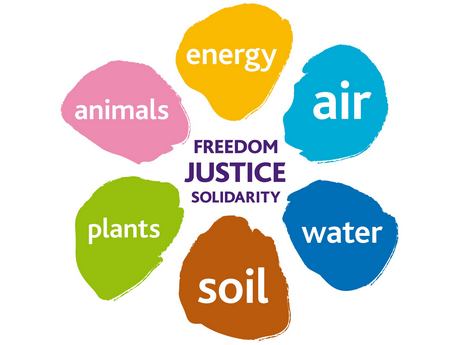
Nature & More takes a circular view at food & health
Volkert is the innovator first to utilize technology to detail food provenance. All his produce is complete with full transparency & traceability to the food backstory, and imprint on ecology & environment. He branded a concept “Nature & More” – which has since become an industry standard for producer & supply chain responsibility. Think of FedEx tracking on every fruit or veggie you buy. Volkert also hosts and curates the SaveOurSoils annual event in Amsterdam. A leading voice backing soil, technology and proper marketing – Volkert is a savvy businessman on a mission to mobilize an industry to empower consumers.
The leading importer and distributor of organic produce in Europe, Eosta serves major retailers and natural food stores in Europe, the USA, Canada and the Far East by focusing on innovation and appealing to consumer demand. Eosta products carry a unique three digit Nature & More ‘trace & tell’ code and/or QR-code that provides retailers and consumers with direct web access to the producer as well as his ecological and social impact. We were the first to obtain carbon credits on organic farming practices and to offer TÜV certified Climate Neutral products in the European food market (via Soil & More). the core values of responsibility, togetherness and authenticity are at the heart of everything they do as a company, trademark and team.
Eosta shows and tells the story behind the product, providing visibility to the grower’s efforts towards a fairer and more sustainable society, through our ‘trace & tell’ trademark; Nature & More. In this way, we empower the consumer to make a well-informed purchasing decision, at a price that is fair to the producer, society and the environment. Distributed global network of logistic and commercial hubs with central management of product development, Nature & More’s innovation and added-value policy, trade flow, marketing, logistics, finance, controlling, administration, ICT and HR. – APEP Description
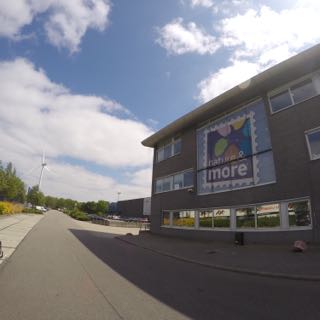 I took away numerous thoughts, concepts and interesting nuggets. One interesting fact I thought worth sharing – according to Volkert, and later reinforeced from from others in food logistics and cross-boarder distribution – the further North you progress, above 50°N and absolutely above 60°N, the proportionately higher percentage of soil-grown Organic food is consumed. Anecdotally – based on all those fit and healthy folks who’ve enveloped the Scandinavian and Bavarian regions of the globe who have the lowest health-care costs and eat all that clean food grown in soil – that seems like an interesting area of further research. I look forward to joining Volkert next year at his SaveOurSoils summer symposium, and getting also opportunity to continue to learn from this very smart and skilled leader using information and technology to engage a following. Without a doubt, he’s guy I want in my corner no matter the brawl.
I took away numerous thoughts, concepts and interesting nuggets. One interesting fact I thought worth sharing – according to Volkert, and later reinforeced from from others in food logistics and cross-boarder distribution – the further North you progress, above 50°N and absolutely above 60°N, the proportionately higher percentage of soil-grown Organic food is consumed. Anecdotally – based on all those fit and healthy folks who’ve enveloped the Scandinavian and Bavarian regions of the globe who have the lowest health-care costs and eat all that clean food grown in soil – that seems like an interesting area of further research. I look forward to joining Volkert next year at his SaveOurSoils summer symposium, and getting also opportunity to continue to learn from this very smart and skilled leader using information and technology to engage a following. Without a doubt, he’s guy I want in my corner no matter the brawl.
.
.
Discerning tastes of Dutch grass-fed Dairy
 Annie and Henk produce great milk. As mentioned as part of the Dutch Dairy chapter in the second essay – they own and manage a stable of dairy cattle in the Northern peninsula near Alkmaar. They source only the highest quality milk to the Cono Dairy cooperative, part of NZO Netherlands. Grass-fed rations coming from open-air grazing is what you get if your a dairy cow taking lodging at Henk and Annie’s cowhotel.
Annie and Henk produce great milk. As mentioned as part of the Dutch Dairy chapter in the second essay – they own and manage a stable of dairy cattle in the Northern peninsula near Alkmaar. They source only the highest quality milk to the Cono Dairy cooperative, part of NZO Netherlands. Grass-fed rations coming from open-air grazing is what you get if your a dairy cow taking lodging at Henk and Annie’s cowhotel.
Best described by my program manager – a lot of attention is given to the facilities: waterbeds, massage brushes, lots of space to move around – we had the opportunity to tour the farm, stalls, lofts, independent birthing pens, youth (cow) hostel, and expansive open flatlands canvased with lush grass and forbs; it’s system health epitomized. Most farmers won’t take the time for these type of tours. Look, there’s never enough hours on the farm, and none should be wasted. Very gracious in sharing time, getting to meet these innovators in person and having them personally tour us through farm & facility was invaluable. It’s like speaking to a founder of an early stage idea – where unique passion and knowledge is unsurpassed. I doubt anyone personifies the many values of Dutch Dairy more than Annie & Henk; the deserved pride was evident.
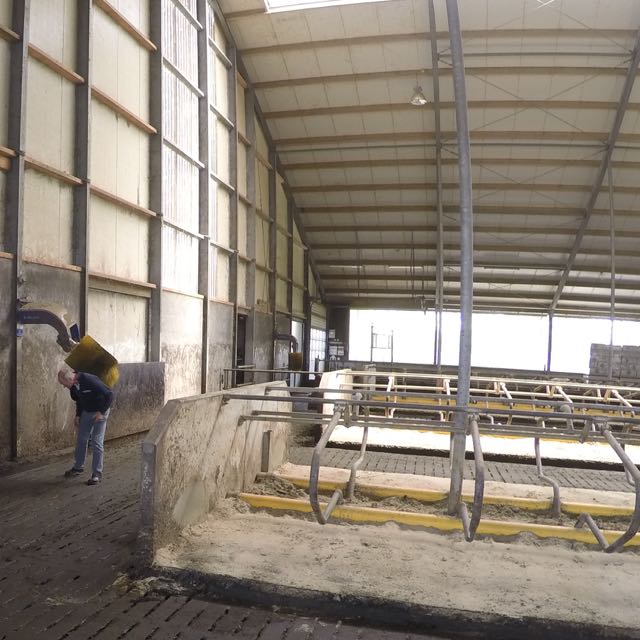
Henk shows off the cow massager – waterbeds on right
.
Annie and Henk find its important to have a good, healthy livestock and therefore pay lots of attention sustainability, a low stress level for their cows, optimal housing and outdoor grazing in the summer months. As a result, the past year they had a low usage of antibiotics, a good production of milk and good growth of the young stock.
Great products come from the best raw materials. Part of Cono Cheesemakers is a small-scale dairy cooperative of 500 dairy farmers in The Netherlands. We produce Beemster cheese and we deliver milk for Ben&Jerry’s ice-cream in Europe (one of Unilever’s suppliers). Our sustainability program Caring Dairy has goals to make the whole chain sustainable. For sustainable feed they collaborate with the Dutch NGO Solidaridad in India. – APEP Description
A market primed for expansion in the United States is that of higher-quality and naturally raised meat and beef. From alleviating routine use of antibiotics, to investing in animal welfare, and of that of evolving and maintaining forage on grass; or Organic – the US market has numerous product categories that decommoditized food animal production has yet fully realize in domestic markets. The land and workforce is there; what’s needed is capital and knowhow to aggregate efforts that reap market and health benefits.
.
.
ii. Minimum Thresholds elevating market standards
Just to enter Dutch distribution – Federal and European Union requirements now make meat cleaner by significantly reducing the risk of use of growth agents in animals, or toxins and known carcinogens applied to the thin-skins of tubers, produce & cereals. Maximizing efficiency and sustainability without cost to food’s intrinsic nutritional value nor compromised safety is required & incentivized. From reducing antibiotic usage in food animals by 67% and lowering the use of persistent pesticides, herbicides and fungicides throughout the EU- much by controlling the grow environment in certain highly susceptible product lines – many thanks should be extended to the Dutch for their efforts.
.
Combating looming threats of resistance with circular farming:
Recently ranked by Oxfam as the best country in the world to find a balanced and healthy diet, the Dutch have not always been the pinnacle food system. In 2007, after being ranked at the top of the heap for proactive antibiotic OVER-USAGE in livestock, the Dutch agribusiness industry established a public-private partnership to lead efforts in greatly reducing the use of antibiotics in their livestock operations – orchestrated as part of a national task force that would introduce reduction policy. Since the Golden Triangle program inception, this collaborative initiative that also promotes sustainable agriculture and holistic animal husbandry to alleviate antibiotics as growth agents and is expected by year-end to have reduced the majority of chronic farm antibiotic use.
safer meats | cleaner vegetables | grass-fed ruminants
As explained, banning antibiotics as a growth promoter alone had little impact on farmer behavior as total volume of antibiotic use remained fairly constant during the first few years of the OneHealth program in the Netherlands. In the beginning, the groups of the Golden Triangle had to work together to fix the abuse of reclassification of prescription. More stringent regulation and professionalizing the data stream used for accountability began to move the needle.
With the vast majority of land protein produced in the US coming from Concentrated Animal Feeding Operations (feedlots), where feedlot animals now consume 70% of total annual US antibiotic usage – we must evolve to a more successful model. Federated mostly in low level doses to promote artificial growth and/or to proactively address illnesses common to exposure to other feedlot animals, only a small percentage of these “germ killers” are actually used on animals for therapeutic practice.
Evaluating recent spikes in case volume. according to the CDC Antibiotic Resistance Threats report ’ 2 Million Americans already contract infections resistant to antibiotics each year. This costs the US healthcare system $20B annually and 23,000 lives. If we maintain business as usual in the States, we’ll only expedite the superbug epidemic on vast scale and these numbers which already seem high, will expand to both the world of the overfed & undernourished, as well as to that of the underfed and undernourished – leaving all without the use antibiotic defense.
.
Clean meat and feedstuff
Frans Van Dongen – Director of International Affairs: COV (Dutch Meat association) helps develop the consupmtion of more Dutch meats. Currently representing a €4B market, COV shepherds 80% of the 125M production animals the Dutch send to market annually. Surrounded by a fake astro-turf field in an ultra-modern cafe in Brussels – when we met we talked pigs, specifically the changes used over the past 8 years to reduce the use of antibiotics, and the resulting systematic evolutions needed in practice. Dairy, beef cattle and veal made a cleaner transition as Dutch Dairy has long-been built on grazing and pasturing, but 10 years back all Dutch food animals fell under the OneHealth program, and that presented a challenge.
After near industry collapse during that period, two large companies now control the Dutch Pig and poultry industries, and have worked in unison as leaders in the Golden Triangle to institute best practices in animal welfare – as seen similarly with bovine. Pigs are tough – as I’ve been told by many in the US and equally in the Europe. The Dutch have been working with their top agricultural universities in Wageningen & Utrecht, and with Frans and the team at CVO, private sectors have greatly advanced clean, safe and health practices with raising pig for pork. Who doesn’t love bacon – right? Sculpted as “Pigs of Tomorrow”, the Dutch learned a great deal from northern neighbor Denmark regarding best practices to operate clean, semi-circular production of swine at scale.
When the EU implemented animal welfare standards, certain countries took lead in pushing the envelope. The Dutch innovation economy took that as opportunity and – as detailed – have since built a business ecosystem that services internal food threshold requirements, and expanding global demand. The Dutch have full commitment to traceability and quality control standards co-defined by industry, government and academia. As with the the success of their Grazing Dairy program, sustainable best practice reduces externalities and fits into a similar vein of thinking that environmental, animal and biodiversity health are effectively shared health.
The future opportunity for Dutch meats seems in finding better ways to promote their higher standards as a market premium to global consumers. As major US retailers commit to antibiotic free meats – production and through-put of those cleaner proteins is the clear roadblock in the US systems. Chipotle alone may want all 17M Dutch swine to service a exploding burrito demand! Nevermind that bacon.
.
Reduced synthetic exposure risk
With potential for a regional footprint, a huge opportunity yet to be realized in the States is glass-house production used in servicing demand for safer and healthy produce of consistency and quality. The market opportunity for a scalable produce production food line from indoor grow facilities that may or may not be full Organic, but are free of potential exposure to toxic pesticides, herbicides and fungicides is immense in the US. Glass-house production is one of the best approaches of repeatable precision agriculture, which most often is focused on reducing waste streams and lowering input costs through better system harmony.
With aspirations to continue to achieve higher returns by further enhancing animal welfare, the Dutch constantly monitor numerous test programs to refine best practices.
The Dutch are a the leading producer of year round horticulture. Both produce production and ornamentals focus, they’ve developed a clean and repeatable process of advanced hydroponics and soil-based glass-house growing. The Dutch again took the ball and ran with it, spinning EU restrictions requiring raising market minimum thresholds in use in potential harmful synthetics to innovate and grow business.
The European Commission has its headquarters in Brussels, Belgium. The Commission has Representations in all EU Member States and 139 Delegations across the globe. 1 President, 7 Vice-Presidents and 20 Commissioners. A new team of 28 Commissioners (one from each EU Member State) is appointed every five years. The candidate for President of the Commission is proposed to the European Parliament by the European Council that decides by qualified majority and taking into account the elections to the European Parliament. The Dutch take presidency of the EU during the first half of 2016.
The Commissioners meet as a College once a week, usually on Wednesday, in Brussels. There are 23 000 staff members working in the Commission in departments, known as Directorates-General (DGs) or services, each responsible for a particular policy area and headed by a Director-General.The DGs draft laws, but their proposals become official only once the College of Commissioners adopts them during its weekly meeting. The DGs also manage funding initiatives at EU level, carry out public consultations and communication activities. – APEP Description
.
DG AGRI - European Commission
The European Commission’s Directorate-General for Agriculture and Rural Development is based in Brussels under the authority of Commissioner Phil Hogan. With a staff of about 1000 and led by Director-General Jerzy Bogdan PLEWA, it is responsible for the implementation of agriculture and rural development policy, the latter being managed in conjunction with the other DGs which deal with structural policies. It is made up of 11 Directorates dealing with all aspects of the Common Agricultural Policy (CAP) including farm support, market measures, rural development policy, quality policy, financial and legal matters, analysis and evaluation as well as international relations relating to agriculture.
I met with Joost Korte – Deputy Dir. – General for Agriculture & rural development. Deputy Dir. Korte brought in a few team members more broadly versed in US production for our meeting. An interesting and enlightening discussion where I learned a great deal about EU policies, and reasoning behind regulations so significantly more stringent than in the US. Including the Netherlands, for many countries already busting at the gills with people, and a requirement feed population densities, there is no other option than circular. The mission of the Directorate-General for Agriculture and Rural Development is to promote the sustainable development of Europe’s agriculture and to ensure the well-being of its rural areas.
I came to Brussels at interesting time, the Transatlantic Trade and Investment Partnership (TTIP) was in full fever. Meeting here with EU leadership, and later with USDA leadership, it was clear everyone had a very different view on agricultural trade and investment. Looking for growth, and equally solidifying nutrient security – it seems certain EU countries have capacity, and have already begun plans to promote agriculture as innovation in coming years.
It seems commonsense to leverage the opportunity to move TTIP along with both raw material trade of higher quality meats and products produced through circular agriculture to enter the States with immediate recourse; and so does the information, methods and practice that can be best brought forth through successful and profitable businesses. I believe Joost agreed with much of what I was sharing, at least of the objectives and possibilities.
.
.
iii. Cultural Value how we eat teems with nuance
I’ve already hit on the importance of Cultural value associated to food in the Netherlands. Equally, that opportunity to connect good food to someones backstory, first generation and linage prior, seems primed and destined for our US soils as we have so many cultural values of many backgrounds in which to aggregate. Let’s take cuisine diversity, and connect it through cultural association of grand-ma’s kitchen – no matter from where grand-ma hails.
.
What would a Belgian know of being Dutch Michael Voordeckers - Eisenhower Fellow'10
I want to spotlight a few folks from my program that seemed to personify cultural values. First, he’s not Dutch, but of nearby brethren who share many similar beliefs, values and perspective – yet so very different, and teeming with Belgian pride: Michael Voordeckers, Strategy Dir at Hill + Knowlton – Eisenhower Fellow’10.
Michael is a Belgian national with 15 years of experience in local government administration and EU political organizations. He has a high level of expertise in connecting national and private sector objectives to the EU agenda, particularly with regards to Competition matters (anti-trust, state aid, merger control), Trade (FTA & Anti-Dumping procedures) and energy & climate change. He also has an in-depth knowledge of the Belgian political and business landscapes and advises clients on both Belgian and EU issues. Michael also has an extensive experience in the restructuring of international companies and its consequences on the local level.
Michael started his career in 1998 at the Ministerial Cabinet of the Belgian Minister of Justice and subsequently he was a lawyer for 5 years at Storme-Leroy-Van Parijs LLP. Between 2004 and 2011 he was the European adviser of the Federation of Enterprise in Belgium (FEB). There he was in charge of European economic dossiers such as internal market, R&D, climate change, environmental issues, services and international investments. He represented the FEB in numerous working groups of Businesseurope.
Michael obtained a Master in Law degree from the Ghent University (1998) and has an MBA from the Vlerick Leuven Gent Management School (2004). He is an Eisenhower Fellow’10. He is of Dutch tongue; and fluent in English & French. – APEP Description
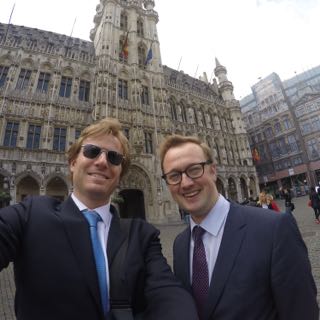 Michael was an incredibly gracious host to me during my entire time in Brussels. He and his wife Katrien went above and beyond to welcome me to their home for dinner with newly anointed Eisenhower Woman’s Program fellow: Annemieke Serlippens. I’ve come to learn that this opportunity to visit Michael and Katrien, and meet their two talented young daughters at their home in Ghent may be something I’ll bragging about in cocktail parties in decades to come. “I had dinner at the house of the First Family of Belgium – is how I’ll boast. You see, Michael is being groomed as a candidate for his party’s leadership, and eventual run for Prime Minister of Belgium. This dad first – who likes to partake in some green-thumb gardening in the backyard of their gorgeous modern home situated directly adjacent to a picturesque canal – may be destined to use his skillset on a grand scale. I was fed a fantastic meal, saw amazing sites and had an opportunity to get to know some top notch people. What an opportunity, and I can’t thank the Voordeckers enough.
Michael was an incredibly gracious host to me during my entire time in Brussels. He and his wife Katrien went above and beyond to welcome me to their home for dinner with newly anointed Eisenhower Woman’s Program fellow: Annemieke Serlippens. I’ve come to learn that this opportunity to visit Michael and Katrien, and meet their two talented young daughters at their home in Ghent may be something I’ll bragging about in cocktail parties in decades to come. “I had dinner at the house of the First Family of Belgium – is how I’ll boast. You see, Michael is being groomed as a candidate for his party’s leadership, and eventual run for Prime Minister of Belgium. This dad first – who likes to partake in some green-thumb gardening in the backyard of their gorgeous modern home situated directly adjacent to a picturesque canal – may be destined to use his skillset on a grand scale. I was fed a fantastic meal, saw amazing sites and had an opportunity to get to know some top notch people. What an opportunity, and I can’t thank the Voordeckers enough.
.
a resurgence for enlightenment
On the second-to-last day of Fellowship travel, I moved from Utrecht in the AM, The Haag for early afternoon coffee, and back to Rotterdam for a late afternoon meeting that I’d been greatly looking forward to… Prior to leaving for the fellowship program I’d been doing some research on the era of the enlightenment– a period in the late 1700s where cultural and intellectual powers promoted reason, analysis, and individualism rather than traditional lines of authority; much of which spawned out of the Dutch “societies of usefulness”. The enlightenment was the time when cultures of progressive thought-leadership first combined with the origin of true & accurate science to ease social errors, shift politics and imprint future cultural norms.
With a request of my Dutch program officer, Lia Rosenbrand of APEP, to find an expert in this concept, and see if they’ll take time to meet with me – may have been difficult task especially only 1 week prior to departure for the Netherlands. Not only did Lia deliver again, but she delivered quality. An academic Doctor, and current University Professor teaching a class on the enlightenment, I was excited to meet Dr. Henk Oosterling – Rotterdam Philosopher. The impact of cheapening food on consumers fatter and chronically ill in the western diet is in need of philosophical assessment, I was hoping to uncover a few golden nuggets in my discussion with Dr. Oosterling that would better connect the value of what sustains us as preventative human and planet healthcare, through deeper connection of ideologies.
a paradoxical theory for societal food system change requires the absolution from past eating sins through awareness , education & acceptance
Dr. Henk Oosterling teaches dialectic philosophy, French philosophy of differences, intercultural philosophy and philosophy of arts in the Faculty of Philosophy since 1985 and is associate professor since 2001. Oosterling has studied Philosophy & Japanese language at Leiden University but obtained his MA- degree (cum laude) in Philosophy at Erasmus University in 1985. In 1996 Oosterling obtained his PhD (cum laude) with a dissertation entitled ‘Moved by Appearances – Towards a hypercritique of xenophobic reason’. Oosterling plays an active role in the city of Rotterdam, for which In 2008, Oosterling received the ‘Laurenspenning’ for his important role in and contribution to social and cultural life in a quickly evolving city. Oosterling is initiator and operational director of ‘Rotterdam Skillcity’, a bottom up research model for urban revitalization and renovation, focused on the specific social-cultural and socio-economic situation of Rotterdam. – APEP program description
Nothing like having a few pints with a philosophy professor who knows his stuff. He called it an Ecological Enlightenment – he explained that perception is fixed to our view and knowledge of the world, and getting folks to see alternatively can be the challenge, and thus knowledge is provincial. He shared a few nuggets, and even armed with the desired silver bullet – it’s called “unbounded hard work” he said! Throughout our discussion he shared both anecdotal stories of his accomplished career as a #changeagent in Rotterdam, and of broader efforts – successful and failed – through the history of mankind. It was like getting a lesson with all the nuance and feeling the history books didn’t detail. Not just the what, but the all important why. One thing he clarified – how changed social errors seem so logical and straight-forward in hindsight, but truly rogue and ostracizing to most at game-time. This to me is the epitome of the cost of cheap food at the expense of value for price.
.
.
iv. Societal Value broadly improve health
From my seat, what’s so exciting about the Dutch model of safer animal production and nutritious & clean grass-fed dairy is it not only sources to the largest segments of our US food system, but the entire process changes a consumer mindset to awareness. This appears to be a key and critical driver to change a social error, or at least adoption of a precautionary principle worthy of change and evolution for the greater good of society.
.
A Grande Dame of unique foresight Jacqueline Cramer - Eisenhower Fellow'92
A German investment banking confidant came to visit me while I was based in Amsterdam toward the end of the program. We got clearance for Benedikt Boesel to accompany me in that day’s meetings to large grass-fed Dairy company – Friesland Campina for a morning meeting, and later that evening to join a dinner party hosted by one very cool and inspirational leader of the Netherlands – Jacqueline Cramer. Jacqueline was for four years Minister of Housing, Spatial Planning and the Environment in the Fourth Balkenende cabinet for the PvdA (Labor Party). Previously she was a professor of sustainable entrepreneurship at Utrecht University and professor of environmental management at Erasmus University. She is member of the Board of directors at Royal Dutch Shell and a member of the Social-Economic Council. Eisenhower Fellowships selected Jacqueline Cramer in 1992 to represent The Netherlands.
High atop her penthouse overlooking Amsterdam city centre – we enjoyed perfectly cooked fish stew, great wines & world-class cheeses, and most importantly – wonderfully engaging conversation. You see, despite my manners being very sound – I can be sometimes a difficulty dinner guest… Too often I start spewing stats of the perils of the food system, and problems that correlate. Sometimes it’s just second nature in my daily conversation, and potentially off-putting to those not in the food movement. Our food is very intimate to us all and we don’t always want to hear someone on a soapbox talking about pending doom, especially when they’re about it consume that doom. That evening, joining Jacqueline’s table along with Benedikt and myself were Eisenhower Fellow Emine Kaya (2007), Marjorie Bonn (2001), and their significant others. After one of my diatribes on the future of food, and how we can potentially resolve these known problems in the near future – the table erupted with laughter as my German+1 dinner-guest cast me as a character of “Game of Thrones” warning of an inevitable winter. Later learning more of the reference, as I’m not a viewer of the HBO series – I shared a good laugh at my own expense. After I dialed it back a few notches from my Fellowship objectives introduction, which I was in full roar after all these food system and agriculture meeting, I stopping scaring everyone with festering food concerns – and we had opportunity to discuss everyone’s career and Fellowship experience while breaking bread at Jacqueline’s dinner table.
Not for being the most talkative nor loudest voice in the room, but instead it became obvious that Jacqueline commanded a different type of attention; that of a Grande Dame. When looking for confirmation of a thought, often every head in the room would turn to Jacqueline to gauge her reaction. In my mind, the description of a Grande-Dame is uber-complimentary in defining a female leader of unparalleled insight and acumen. As with meeting Saskia Stuiveling a week prior – Jacqueline equally had a presence, and a fantastic one at that. Hearing her backstory and of her efforts to enact societal evolution – you can’t help but be impressed. A few years back under previous administration Jacqueline was the equivalent of the US Secretary of HUD for the Dutch government. A progressive thought-leader vested in environmental and sustainable practice, during her time she was involved in bringing consumer-based & industrial recycling programs mainstream, she worked to guarantee domestic lands balanced with the growing demand for Dutch agricultural exports, and she instigated numerous processes that made the Dutch society far ahead of many EU, and surely US, allies when dealing with climate change, sea level rise and environmental instability.
Under Jacqueline’s leadership, in 2009, Amsterdam launched ‘Climate Street’ to evaluate how the Dutch could decrease and clean CO2 emissions – while making the Dutch flagship city cleaner & greener through advancements in innovation. Electric trucks were employed to collect trash, solar panel were used on state buildings and bus stops and many other trials to see what has impact and what can scale.
Focused on the production and utilization of cleaner energy – IBM & Cisco ponied up, and over 700 houses were given favorable terms from ING and Rabobank to buy everything efficiency related. Since Jacqueline’s involvement – the Dutch energy infrastructure has received a significant facelift cutting their energy usage by up to 50% based on utilization of smart technologies with real-time monitoring and adjustment. Others creative initiatives included household small wind turbines and proven economics backing solar panel.
The Dutch and our coastal population densities, and for that matter – every country in the firing line of climate change and rising waters should say thanks to Jacqueline for her foreasight and investment in a circular economy for the betterment of society through advanced programs of defined action & consumer awareness.
.
Schools of thought
We, like the Dutch, rely heavily on our College and University systems to groom positive contributors to society. The information shared in each institution’s hallowed halls is useful, yes, but the learning how to learn, how to meet tougher deadlines and form adult relationships and bonds; becoming a responsible adult in contained environment is part of the high ticket price. As Americans, we go to, or strive to go to – a 4 year college. Many aspire higher still. It’s part of who we are, like buying a house – it’s cultural practice living out in social norms.
 The Golden Triangle has staying power – it’s systemic:
The Golden Triangle has staying power – it’s systemic:
So, the influence higher-education has on society is supremely strong. A through-put engine churning out passionate contributors and future leaders, higher education has great responsibility in sculpting societal norms. Great passion lies on nearly every campus across the US, teeming with belief in something greater than themselves. Schools most often react to these situations well with adaptation to trends, but mostly it’s full blown movements that gets the ball rolling on campus. Find me a college campus 2015 without a sustainability office, integrated curriculum, if not Dean of sustainability, and I’ll present to you how they’ll be out of business in less than a decade. One of the latest movements enveloping a younger population in the United States is a better or local food movement. 40% of 20-somethings define themselves as “foodies” – caring for food quality and provenance. Even driving many young men, and even more coeds to summer farm internships (farm-hand) to best immerse themselves in their passion for higher quality food. Funny, we’ve done little with land-grant US agricultural colleges, but it’s liberal arts colleges, progressive vocational colleges, and even STEM & business schools where sustainable agricultural programs have begun to gain mass appeal.
After visiting Wageningen I saw it in an entirely new light. Dutch higher education injects system health for all practice food, environment and ecological within the entire university. It’s taught and presented as a requirement of the whole. At Wageningen UR, called Europe’s MIT or maybe best described as Nature’s MIT – I saw first hand the opportunity University has on evolving social norms.
The most violent element in society is ignorance Emma Goldman
I provided details on scientific research happening at Wageningen University as part of Essay 2: Evidence-Based Agriculture in meeting Dr. Bastiaan Meerburg, but another of my meetings on-campus that struck me unique was with Director, Wageningen International – Dr. Huub Loffler. Huub presented the entire full-kit package very well. Guiding me through the idea and importance of OneHealth, the best analogy I can make is the Dutch perspective on circular is similar to the immersive impact of technology on every aspect of day-to-day lives. It’s just a different way of thinking and acting thanks to greater awareness. The foundation for the formula is proper animal husbandry and well-being; it’s the keys to circular kingdom. This thinking is immersive in their STEM programs which look to the guidance of natural order and that of the entire system instead of becoming too focused on mundane detail or reductionism that loses sight the sum is always greater than the separate – especially with realization parts are related. Striving for nutrient security and not caloric intake, the Dutch focus on more efficient types of faming closer related to the system we belong. This one system Health thinking is taught in all disciples, no silos, to every student that enrolls. It’s immersive and impressive.
We’re more than a bit food ignorant in the United States. From affect, effect, practice, or production location – we’re mostly blind to the food that sustains us. Communications issues first – then infrastructure can follow, but like the Dutch have done with food, or we in the US have done with kicking a pervasive cigarette habit – we must embrace a known problem to afford positive solutions to follow. In conjunction with land-grant college and universities – we in the States need to adopt research centers (innovation hives) dedicated to promoting and progressing circular agriculture and antibiotic free meat production as means of reducing risk while teeing-up business growth to a market demanding alternatives. Drawing upon parallels of producing safe and healthy food with appeal of environmentally conscious practice and the technology innovation economies thriving on campus in the US, the opportunity is to make wake of broader advocacy and engagement amongst generations next when food is treated as the business o f primary healthcare for body and planet.
.
v. Personal Well-Being food is paramount to healthcare
My goal in this Food Value essay was to first address some of the all important intangibles before getting to the foundation of food has as human’s leading source of health and well-being – good or bad. Previous chapters Decommoditization & Minimum Market Thresholds address the importance of nutritional value associated to food safety and market opportunity. Detailing how we must cleanse bad practices not serving our well-being at most dinner tables before delving into something as tangible as food’s direct impact on health.
While in the Netherlands , I was exposed to countless studies, field & lab experts, and replicated methods not trying to prove if the quality food is better through circular vs. conventional, as often studied in States where research projects have conflicted interest and lead to biased science for those who fund the initiative. Instead, nutritional value of proper practice is a constant and premise for nutrient security. “Bang-for-buck” quality, or food value, associated to better production and sourcing as preemptive and proactive healthcare just seems commonsense to the Dutch.
.
The value of food is primarily nutritious
I had the opportunity to spend a few hours with Frits Thissen – Permanent Mission of the Netherlands in Brussels. My initial meeting upon arriving the first morning in Brussels, Frits took me out to an early lunch at a fantastic small family owned restaurant that made everything from scratch. All ingredients sourced locally, or from personal connections in Italy. As the Counsellor for Agriculture, Nature and Food Quality – Permanent Mission of the Kingdom of the Netherlands to the EU, Frits will have a big role to play prior to his retirement. In 2016, the Dutch take over presidency in the EU and have some exciting concepts and plans on utilizing agriculture as global innovation.
Additional nutritional value associated to food grown or reared in accordance with circular practice is immense.
It is our daily job to negotiate and lobby on behalf of the Netherlands in the EU. This implies that all of us, each in his/her own specific field of expertise, are in daily contact with the representatives of the other Member States, as well as with the European Commission and the European Parliament.
A long-term strategy for food policy is needed in which ecological sustainability, public health and robustness of the food supply are the central pillars. Food policy must take account of changing power relations, incorporate seed companies, supermarkets and the food industry, and acknowledge the relationship between production and consumption. As regards ecological sustainability, the policy will need to focus not just on production, but also on consumption. Public health policy will need to focus more on the supply side. At present, the healthy choice is the difficult choice. – APEP program description
The Permanent Representation promotes the Dutch interests in the European Union (EU). The team consists of people from practically all ministries and other branches of the Dutch government, united in one building and one organization in Brussels. Frits shared ideas on reinvigorating food of it’s value and nutritional benefit, Frtiz is spearheading efforts to establish a Dutch food strategy for national security. Part of a group defining a best approach to fixing a domestic & global food network, Frits was a significant contributor to the WRR report designing continued refinement to their already progressive system which seems years ahead of our own. It’s somewhat reassuring to see that they’ve still got some kinks to work out of their food system.
“The food supply has changed drastically in recent decades. Agriculture has become industrialised and larger in scale. International interdependences have grown. Food production is heavily dependent on imported raw materials and semi-finished products. Power has also shifted away from government, expertise centres and agricultural organisations, and now largely lies with supermarkets, seed suppliers, the food industry, NGOs and international organisations. Dietary patterns have also changed, with higher consumption of animal products and processed foods. The route taken by food from farm to plate is considerably longer and less transparent than in the past. Behind the ranks of products on the supermarket shelves lies a complex network of supply and production chains that crosses national borders. The report refers in this context to the ‘food network’.”
I very much enjoyed my lunch and time spent with Frits. He was a funny and jovial guy with a great outlook on life. Already living through many of the risks now facing production in the States, in a calm and proper demeanor – Frtiz provides assurance to me that what we need to accomplish is nothing that hasn’t been tried and done before. As the Dutch progress their EU leadership to further circular agriculture innovation economies – they can rest assured they’ve got a smart guy keeping fires lit.
.
.
